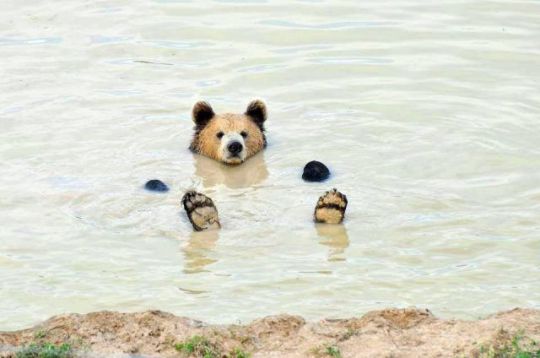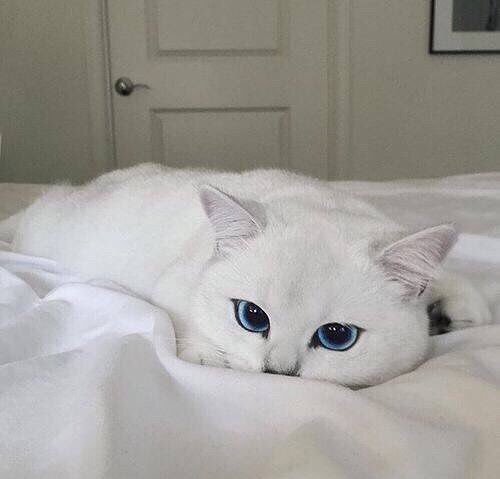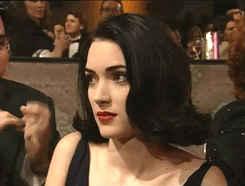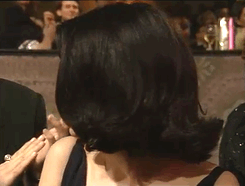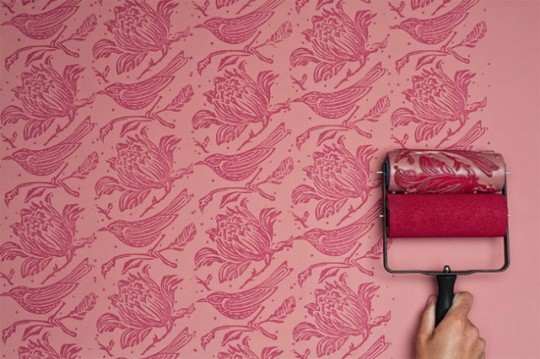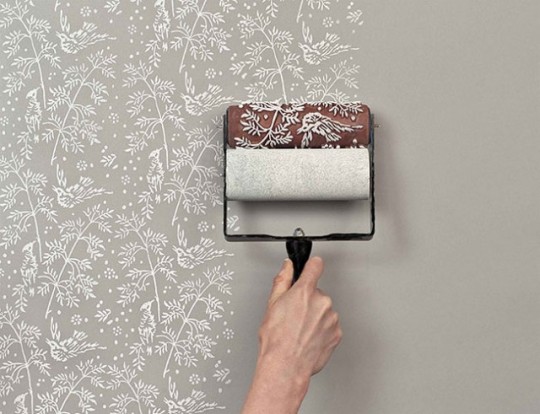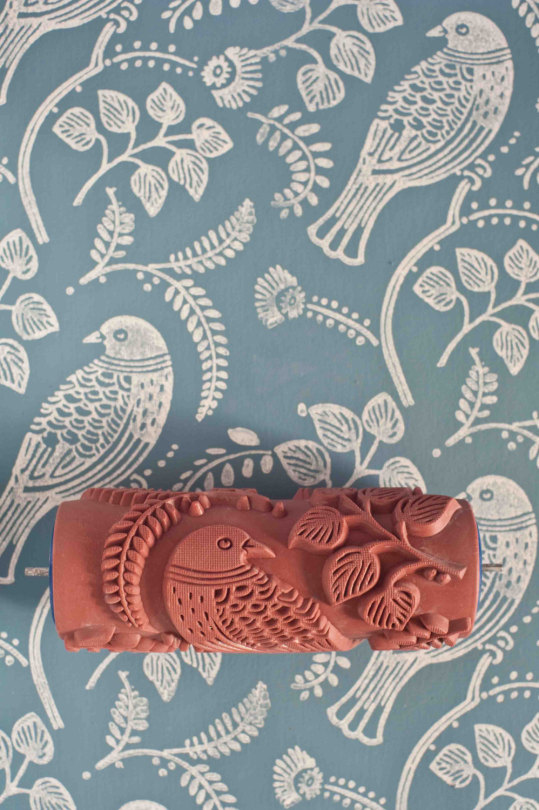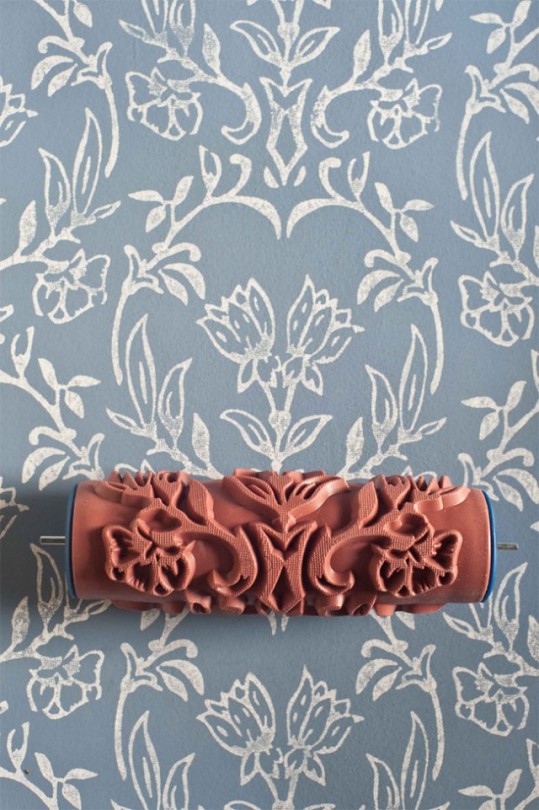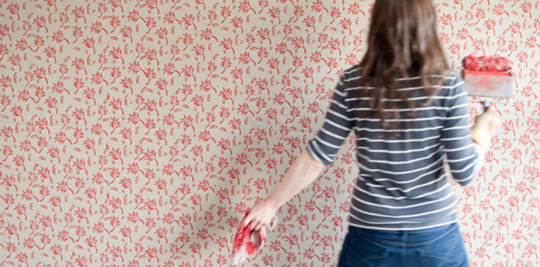I really enjoy art, fashion, animation, video games and anything cute. Warning: you may find gore, blood and other sensitive materials •Venezuelan/17/Female
Don't wanna be here? Send us removal request.
Quote
“DON’T GO TO ART SCHOOL. The traditional approach is failing us. It’s time for a change. I’ve had it. I will no longer encourage aspiring artists to attend art school. I just won’t do it. Unless you’re given a full ride scholarship (or have parents with money to burn), attending art school is a waste of your money. I have a diploma from the best public art school in the nation. Prior to that I attended the best private art school in the nation. I’m not some flaky, disgruntled art graduate, either. I have a quite successful career, thankyouverymuch. But I am saddened and ashamed at art schools and their blatant exploitation of students. Graduates are woefully ill-prepared for the realities of being professional artists and racked with obscene amounts of debt. By their own estimation, the cost of a four year education at RISD is $245,816. As way of comparison, the cost of a diploma from Harvard Law School is a mere $236,100. This is embarrassing. It’s downright shameful. That any art school should deceive its students into believing that this is a smart decision is cruel and unusual. Artists are neither doctors nor lawyers. We do not, on average, make huge six-figure salaries. We can make livable salaries, certainly. Even comfortable salaries. But we ain’t usually making a quarter mil a year. Hate to break it to you. An online debt repayment calculator recommended a salary exceeding $400,000 in order to pay off a RISD education within 10 years. Don’t do it. Don’t start your career with debilitating debt. Please. I beg you. Think long and hard whether you’re willing to pay student loan companies $3000 every single month for the next 10 years. YOU’VE GOT OTHER OPTIONS. You don’t have to go to college to be an artist. Not once have I needed my diploma to get a job. Nobody cares. The education is all that matters. The work that you produce should be your sole concern. There are excellent atelier schools all over the world that offer superior education for a mere fraction of the price. Here are a few: Watt’s Atelier (http://www.wattsatelier.com/org/WattsAtelier/cms.aspx) Los Angeles Academy of Figurative Arts (http://laafa.org) The Safehouse Atelier (http://www.thesafehouseatelier.com) There are more. Many, many more. And none of them will cost nearly as much as a traditional four year school. And then there are the online options. The availability of drawing and painting resources is incredible. Sitting at a computer I have direct access to artists all over the world. I have the combined wisdom of the artistic community to pull from at my leisure. For less than a few grand a year I can view more educational material than I would see at any art school. You can get a year of access to all of the Gnomon Workshop’s videos for the cost of a few days at the average art school. With all of these options it can be a little daunting. So you know what? I’ve come up with a plan for you. Do this: The $10k Ultimate Art Education $500 - Buy an annual subscription to The Gnomon Workshop and watch every single video they have. http://www.thegnomonworkshop.com/subscription/ $404.95 - Buy Glenn Vilppu’s Anatomy Lectures and watch all of them. http://www.vilppustore.com/Drawing_Anatomy.htm $190 - Buy all of these books and read them cover to cover. http://www.noahbradley.com/blog/2011/10-books-every-artist-must-read/ $1040 ($20/week x 52 weeks) - Weekly figure drawing sessions. Look up nearby colleges and art groups and find a weekly session to attend. $2500 - Sign up for a SmART School Mentorship when you feel ready to get one-on-one guidance to push your abilities. http://www.smarterartschool.com $2400 - Sign up for four classes from CGMA. Get taught by professionals in the industry on exactly the skills you want to learn. http://www.cgma2dacademy.com Free - Watch all of these keynotes. http://www.jonathanfields.com/blog/the-7-keynote-mba/ Free - Study other things for free. Suggested topics: business, history, philosophy, English, literature, marketing, and anything else you might be interested in. http://academicearth.org $500 - Throughout the year, use at least this much money to visit museums in your area. And not just art museums. All museums. Free - Create accountability. One of the great advantages to attending a school is the comradery. So use the internet to create your own. Go join a forum ( http://crimsondaggers.com/forum/ ) where you can give and receive critique on the work you’re developing. There are many different ones out there that can suit whatever flavor you prefer. The rest - Materials. Buy yourself some good art materials to create with. Whether digital or traditional. Don’t skimp. There. For less than a quarter of the tuition for RISD you’ve got yourself a killer education. You’ve received more quality, focused education than I think you’ll find at any art school. Moving forward There has never been a better time to be an artist. I’m inspired by the sheer quantity and quality of internet resources available to artists. But I encourage all aspiring artists to think long and hard about their options. Student loans are unforgivable through bankruptcy and can wreck your financial future. Establishing a career while under the unceasing brutality of student loans makes an already difficult task nearly impossible. Find another path. Art is a wonderful, beautiful, fulfilling pursuit. Don’t ruin it with a mountain of debt. *DISCLAIMER: I do not mean any offense to any of the educators at art schools. I have numerous professors who I consider close friends. This is neither an attack on you, nor your teaching abilities, nor the value that you provide for your students. I’m talking about the schools, not the artists teaching at them.*” - Noah Bradley - Noah Bradley is a Environment Concept Artist & fantasy & sci-fi & concept artist Illustrator based in Virginia. Website here: www.noahbradley.com
THIS. (via leseanthomas)
2K notes
·
View notes
Text
THE ART SCHOOL DILEMMA
Hey friends, here’s the thing I was talking about. Prepare for some information and advice in a probably not extremely coherently written way.
Art school is expensive, like ridiculously expensive, especially if you haven’t gotten a good chunk of scholarships to help pay it off. And it is an even more painful thing for those who WANT to go to art school but most definitely can’t. I’ve attended two art schools - Ringling College of Art and Design and currently Laguna College of Art and Design - majoring in Game Art at both schools. Both were great learning experiences, and I grew a lot as a person. I’m currently finishing my second semester at LCAD as transferring fucked me over. And I started to realize at this half way point that I knew exactly what I wanted to do, and that all these superfluous classes were honestly meaningless to my goal and just wasting money. And it is with that I announce that I will probably be dropping out to focus on independent study. I may be doing one more semester at LCAD, but most likely not. And I’d like to share the ton of advice I’ve collected from friends who work in the entertainment industry, as well as instructors. Now note that this is mostly directed towards entertainment design majors (animation, game art, etc.) and media majors, but it can most likely hold true for other arts. ;) This is also geared more towards people who want to work in contract or salary jobs, vs just freelancing.
The question many ask is completing art school worth the debt? I brought up this question to some friends who graduated from places like Gnomon, and most told me no, it wasn’t. Because most of what you learn in art school will not only be outdated by the time you get out (in regards to programs and pipelines), but with the internet it’s now easy to get all the resources you need for far cheaper or even free. There’s a post going around by Noah Bradley, a concept artist, that’s basically the same advice I’m going to be giving, however I’ve got some other stuff to addon. Now, with that being said, what’s even the value of going to art school? Well there’s definitely pros you can get out of it but once you’ve gotten those out of the school, there is no reason to stay unless you really need that piece of paper. Art school is a great way to network, as often instructors are people who (hopefully) have worked in the industry, and if you do have instructors like that BUDDY UP WITH THEM, MAKE THEM LIKE YOU, THEY ARE IMPORTANT. And this is the same for your peers, this sounds awful but I’ve always been told it’s a good idea to hang around with the best artists in class, you don’t necessarily have to be friends with them, but watching them work and ABSORBING THEIR METHODS will help make you a better artist too. As well as hanging out with just good people in general. Aside from networking, the second importance of art school is to help you figure out specifically what you want to do. (Hopefully, if it’s not then get the hell out of there) For example, when I went into school I just wanted to do game art but didn’t know what part of it I wanted to do, now I know I want to be a 3D character artist. Once you have that knowledge of specifically what you want to do that’s when it’s usually a good idea to get out of there and save your money. If you know what you want to do prior to going to art school, well, you don’t need to go, unless you’re incapable of networking or learning outside of a school setting.
As for the degree, you do not need it to be successful in the art industry. I’ve been told countless times that they have NEVER been asked what school they went to, or what degree they got. They just want to make sure you, as a person, are fit for their company, and that you have a good portfolio. The degree is good to have if you’d like to teach art, or do something outside of art that requires it, but that’s about it.
Onto the advice. Independent study isn’t easy, and it definitely takes a certain type of mindset and discipline in order to achieve success - honestly something I didn’t have prior to me going to art school. It’s important to have a plan laid out, especially if you’re going to focus a year or two of your time on this one thing you want to be. I’m honestly awful at organizing information, so I’m just going to bullet point my advice. B)
Figure out what you want to be, this needs to be specific, there are generalist jobs out there, but they are few and in between. So some examples of something more specific would be character artist, 3d modeler (for environments, assets or characters), rigger, animator, visual development, concept artist (characters, environments, assets, etc.). You need to know specifically the job you want to do.
Research studios and jobs you’d be interested in, read over the requirements for these jobs, take note of them and what you need to improve on as well as learn
Look into online classes, workshops, video tutorials that relate to those job requirements. For game art there’s a TON of things out there. If there’s any self-taught animators out there that have some recommendations please feel free to send some my way and I’ll add them to the end of this post.
Focus ALL your time on that goal, so for example, once I switch over to my independent study plan, I will ONLY be doing 3D character work and putting all the time I can into focusing in learning zbrush and getting better.
Join online forums related to the industry you’re shooting for (for for game art places like conceptart.org and polycount.com)
Post your work there, you’ll get a lot of shitty critique from people who have nothing better to do but crit people all day, but you’ll also get a lot of valuable advise from people in the industry. Take in all that crit and keep improving.
Make a list of phone numbers for companies you want to work for
Make a list of contact info of networks if you have them
If you don’t have networks, go to conventions, expos, and meetups, make networks, talk to people, show them your work, it is DIRE you do this. If you’re not going to school this is one of the only ways you can make networks aside from online. And in real life meetings are going to be that much more meaningful.
If you have networks, ask around if they know anyone in these companies you’re interested in working for.
If they do talk to these people about what it’s like working there, what they did to get in, what they think you need to do to get your work to their standard.
Also know that a lot of these companies are full of mediocre artists, something my instructor made a point of is that we only see their star artists publicly, but not the hundreds of okay artists in the back. You do not have to hold your standard to these top artists, you just need to be better than the okay artists. Obviously it’s a good idea to shoot for the top, but do not let the idea that you’ll never be that good so you won’t get a job discourage you, because in reality that is NOT the majority.
Once you’ve got your portfolio started (it doesn’t have to be completely ready, just have a few solid pieces to show), start CALLING up the companies mentioned before. DO. NOT. EMAIL. I know this is extremely difficult for people who have anxiety (myself included) but it’s imperative that you call. In an email it’s so much easier for a recruiter or hiring manager to ignore it or tell you they don’t have time currently. On the phone is a lot harder for people to ignore you, and chances are they’re not going to hang up on you haha.
When you call ask if they have INTERNSHIPS FIRST, do not ask about jobs. If you ask for a job they’re going to tell you to look on their site online and the conversation ends there. Now this is where things might get a little tricky, some companies require you to be in school in order to apply for an internship, but a lot of companies haven’t even thought of offering internships! (especially if you look at smaller studios and don’t shoot for the big ones just yet)
If they don’t have internships or haven’t thought about having internships, explain to them that you’re interested in helping them out in the studio in exchange for experience. Now this is very different then when people come to you asking you to do free art in “exchange for getting viewership” or whatever bs. Working in a studio you are going to learn the ins and out of a professional pipeline, you are here for the education you wouldn’t get while in school. And for the stuff you’d learn in school (like programs) you are going to learn them at a MUCH faster rate while working in a studio. They are far more likely to hear your pitch for an internship that is at no cost to them vs someone looking for a job. An internship is also an important opportunity to see if you’re a fit for their company, and it is not uncommon for companies you’ve interned at to hire you later on.
Sometimes if you’re rejected by the first person who answers, call again and see if you get a different person. Sometimes person A is having a bad day and doesn’t want to hear your jargon, but person B may be willing. And that second call might be enough to get them to hear you out and look at your work.
Sometimes a portfolio book is more effective than a website. It’s easy for a hiring manager to ignore something online (similar to the email thing mentioned earlier), but a physical portfolio book is RIGHT THERE AND HARDER TO IGNORE OR TOSS. So consider making one.
Be proactive, stay on track, be disciplined, do your research and don’t waste time. Consider places you may of ignored before (example, while I majored in games, I’m looking into the toy industry too!)
Good luck, and everything will be okay. Work hard and believe in your capabilities as a successful artist. Beat that stereotype and don’t let money be the reason you can’t make it.
I hope this all helps, and is somewhat useful. This is mostly me just retelling advice that I was given. ;P
Below are some stuff to watch/look into (these are mostly geared towards game art, but if any other people want to recommend some other resources I’ll add them here! These are not all free, but a lot more affordable than a four year college)
Resources
Gnomon Videos (Mostly entertainment design and game art focused.)
Feng Zhu Videos (Huge range of videos, mostly GA/concept related)
Noah Bradley’s Art Camp (12 week courses focused on either covering all the important fundamentals of concepting or environment concept design)
CGMA (CG Masters Academy, lots of industry professionals teaching online classes - either 2D digital art or 3D. Lots of courses!)
CDA (Concept Design Academy, offers several tracks focusing on character design, environment design and storyboarding)
Conceptart.org (Great place to get inspiration, keep track of upcoming art events, get critique through the forums and participate in contests. GA focused but still has lots of variety.)
Polycount (A great resource for getting feedback and advice on 2D and 3D work. GA focused.)
Robotpencil (Mentorship programs taught by Anthony Jones and others! GA/Concept focused.)
LUCIDPIXUL (Mentorship program, but also very valuable youtube videos. GA/Concept focused.)
ArtStation (Another great place for inspiration, and also view job postings. GA focused.)
Ctrl+Paint (Digital painting tutorials, majority of the content is free.)
Proko Videos (ANATOMY)
Shaddy Safadi (Digital painting tutorial, environment focused)
SILA (Society of Illustrators Los Angeles)
Creative League (Community of animators and creatives, posts resources and other helpful things. Animation focused.)
Animation Resources (As it’s named, animation resources. :P Animation focused, also has illustration resources as well.)
Ross Draws (Nice speed paint stuff!)
Level Up! (Artist interviews, freebies and resources)
Books
The Animator’s Survival Kit (Important book to have for animators, very thorough when it comes to traditional animation.)
Illusion of Life: Disney Animation (Often dubbed as an Animator’s Bible)
Digital Painting Techniques (Personally own this book, and love it! Great techniques on painting digitally)
Color and Light (Staple book every artist should consider checking out, written by James Gurney. Focuses on the use of light and color.)
Imaginative Realism (Another Gurney book, focused on painting things that don’t exist in real life and how to go about it.)
Picture This: How Pictures Work (Importance of shape language)
Any of Scott Robinson’s books (It’s good shit)
12K notes
·
View notes
Text
Everyone’s acting so shocked that Rebecca sugar is bi and I’m like listen,,, no straight person has ever written gay characters this well or this respectfully in the history of ever. Either she was like The One True Ally ™ or she was LGBT
50K notes
·
View notes
Photo


every day I love this man more and more
33K notes
·
View notes
Text
Ghostbusters belongs to little girls now. It’s what you assholes deserve for trying to take My Little Pony away from them.
78K notes
·
View notes
Photo

Don't mess with Harley!
5 notes
·
View notes
Photo










Floral Photography Inspired by Claude Monet by Nikita Gill
Poet and photographer Nikita Gill experiments with a series of floral photography the concept of impressionism and the important play of light and dark. Inspired by the riveting work of impressionist painter Monet, her work aims to mimic the color scheme, intensity and the weather conditions the classical artist worked under.
Gill captures the sublime quality as well as Monet’s subtleness.
34K notes
·
View notes
Text
Fun fact
Native Americans weren’t allowed US citizenship until 1924.
Let that sink in. We lived here first…for thousands of years. And less than a hundred years ago we were finally given citizenship.
401K notes
·
View notes



